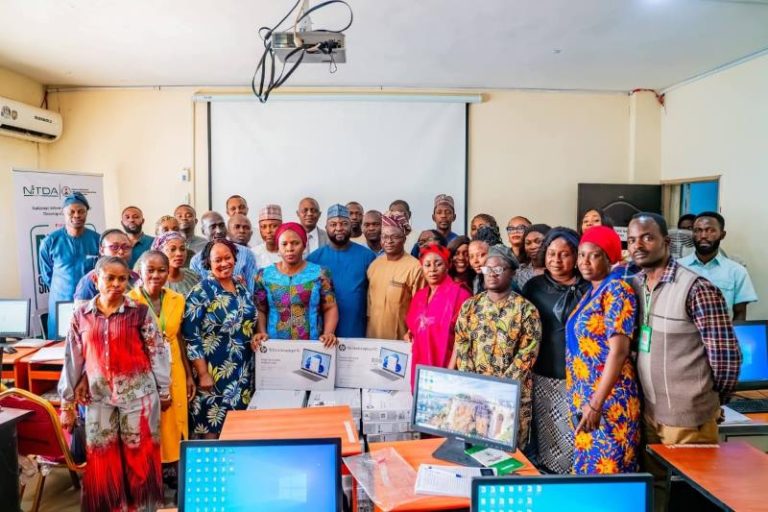
The National Information Technology Development Agency (NITDA) celebrated the successful conclusion of the NITDA-Founder Institute (FI) 2023 Startup Accelerator Programme, with the graduation of 13 outstanding founders who demonstrated exceptional dedication and innovation during the rigorous 14-week accelerator program.
According to NITDA, the ceremony, attended by key industry stakeholders, government officials, and tech enthusiasts, emphasized the collaborative efforts between NITDA and Founder Institute in fostering a vibrant tech innovation ecosystem in Nigeria.
The Founder Institute, under a contract agreement with NITDA, executed a virtual Accelerator Programme that aimed to discover and nurture founders with innovative startup ideas in emerging technologies, including Blockchain, Artificial Intelligence, Robotics, Cybersecurity, e-Commerce, Software, Fintech, EdTech, Internet of Things (IoT), and Biotechnology.
The programme, which commenced on October 18, 2023, attracted a total of fifty founders, with 30 enrolled from NITDA and 20 from the Founder Institute. The accelerator featured 16 knowledge acquisition sessions, covering various aspects of entrepreneurship, product development, and mentorship.
In his address, the Director General of NITDA, Kashifu Inuwa, commended the commitment of both NITDA and Founder Institute in upgrading the capacity of the new set of innovative portfolio startup companies.
He expressed satisfaction that the programme aligned with President Bola Ahmed Tinubu’s “Renewed Hope Agenda”, particularly the administration’s redefined priority aimed at leveraging technology for “Accelerating Diversification through Industrialisation, Digitisation, Creative Arts, Manufacturing and Innovation” and emphasised its harmony with the Federal Ministry of Communications, Innovation, and Digital Economy’s strategic pillars.
Inuwa stated that the ceremony further showed the Government’s recognition of digital innovation and entrepreneurship as catalysts for transforming traditional economic sectors. He cited The Nigeria Startup Act as a crucial piece of legislation offering favourable advantages such as regulatory support, tax reliefs/incentives, capacity building, talent development, effective accountability, and unambiguous governance guidelines for the country’s tech ecosystem.
Commending the graduates, the DG said “I highly commend the rigorous review phases today’s graduands passed through and it is with great pride that I congratulate the 13 founders who excelled at the programme. Your success in the programme is a clarion call for you to sustain the determination and diligence to gainfully explore the boundless innovative future that beckons at you.
“To others who participated in the programme, the knowledge gained will remain yours as you have garnered new insights to prepare you for the challenges ahead. I salute your courage in making it to the Accelerator programme. It is instructive that the federal government recognizes that digital innovation and entrepreneurship are major catalysts for the rapid transformation of traditional economic sectors by supporting the provision and adoption of indigenous and tailor-made solutions for the nationwide implementation of Nigeria’s rapidly expanding tech innovation ecosystem.
“Suffice it to say that the Nigeria Startup Act offers Nigeria’s tech startup ecosystem the most favourable advantages and promises a better future for growth, attraction, and protection of investment in tech startups and companies. The Nigerian tech ecosystem has so much to benefit from the Act which includes regulatory support, tax reliefs/incentives, capacity building and talent development, effective accountability, and unambiguous governance guidelines.
He called upon relevant stakeholders to collaborate in leveraging this game-changing legislation to diversify the economy and create opportunities for indigenous tech innovation enterprises,” he added.
He also assured NITDA’s preparedness to partner with local and international entities to address challenges faced by talented indigenous startups, fostering an environment conducive to growth and innovation in the tech sector.
The rigorous review phases during the programme included Mentor Review sessions, Mentor Idea Review (MIR), Product Development sessions, and Mentor Progress Review (MPR) sessions.




